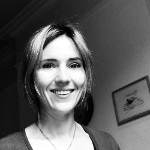-
Studying for the core course of the AHH certificate has been a lot of work. I had signed up for the course last minute, having learned about it after I had spent a lot of the time during the first lockdown and over the summer 2020 thinking about my vision of an 'animal-assisted philosophy' (AAP). If you have the patience for sub-optimal audio-quality, you can find the origins of the idea in this short home video, which also introduces you to some of the philosophy that is important for the project (which won't be covered here) as well as to my canine informants!
What I like about the course is that it provides the opportunity to focus on the ethical side of AAIs. With no background in the traditional professions that work with animals, I took this first exercise as an opportunity to motivate doing so from my perspective as a philosopher. The following is a kind of blogpost, opinion piece, teaser for animal-assisted philosophy that I would share with e.g. university officials and interested collaborators.
.
Because of the COVID-19 restrictions, I wasn't able to do any observations of actual programmes running AAIs, yet I tried to soak up everything I could find about them. I was alerted to "The Mustang", a movie based on an actual programme pairing prison inmates with wild horses, and my course instructor Sue Tuemer kindly agreed to let me write a review instead of a real observation.
The course also rightly emphasised the need for more critical research on AAIs, and though I am largely unfamiliar with empirical methods, I tried to incorporate an investigation into how, exactly, AAEs function, if they function, into AAP. Here, you can find a draft proposal for a pilot study that aims at identifying AAP's main educational mechanism, inspiring philosophers specifically to change their beliefs about animals and working towards intellectual and moral growth through multispecies pedagogy, creative linguistic analysis and conceptual analysis.
In sum, I feel the core course has helped me to make my vision of AAP more precise and, hopefully, realistic. But judge for yourself - and let me know if you have any questions, comments or advice to share.
